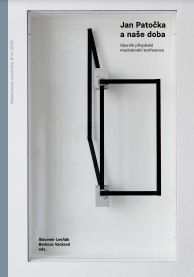Patočkovo pojetí odpovědnosti jako neorgiastického překonání každodennosti
Patočka’s Concept of Responsibility as a Nonorgious Overcoming of Everydayness
Author(s): Dalibor Hejna
Subject(s): Christian Theology and Religion, Ancient Philosphy, Contemporary Philosophy, Philosophy of Religion
Published by: Masarykova univerzita nakladatelství
Keywords: beginning of history; responsibility; demonic mystery; religious mystery; Christianity; soul care; Platonism;
Summary/Abstract: In his analysis the author refers to the distinction that the Czech philosopher Jan Patočka makes between demonic, orgiastic experience of sacrality and to the responsibility relating philosophical questioning as two forms of overcoming of the service to a self-fulfilling life. Freedom from the everydayness and orgiasm and responsibility for what rules over all things, though it does not exist in the sense of the thing, in philosophy takes the form of soul care that the soul becomes “immortal”, because of its self-surrender it overcomes even the most recent link to life in the middle the inter-secular being. Platon’s care of the soul, with which begins the history of philosophy and of Europe, contains the orgiastic mystery in itself that there is, however, subordinated to the discipline of reason and responsibility. The crisis of Europe originates in the fact that history is no longer understood as a history of responsibility, which does not arise from insufficient knowledge, but from the tendency to conceal the immense difference that divides the orgiastic mystery from the religious mystery, most perfecty embodied in the Christian myth about the God-man.
Book: Jan Patočka a naše doba - Sborník příspěvků mezinárodní konference
- Page Range: 47-55
- Page Count: 9
- Publication Year: 2018
- Language: Czech
- Content File-PDF

